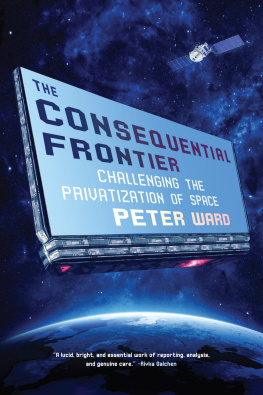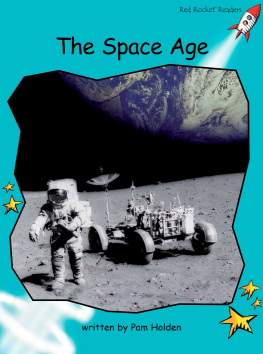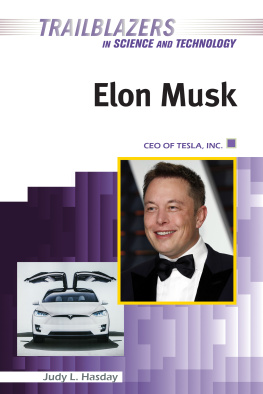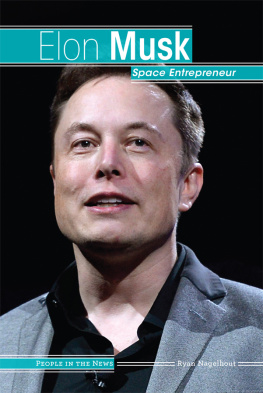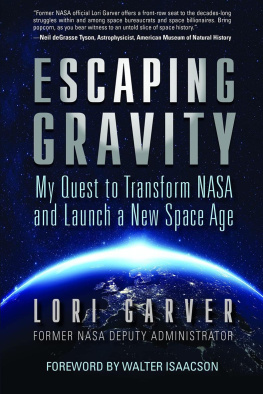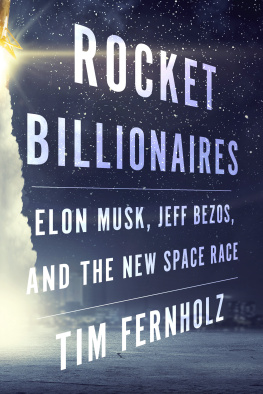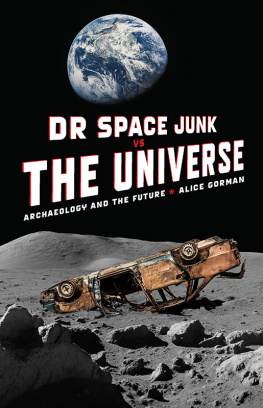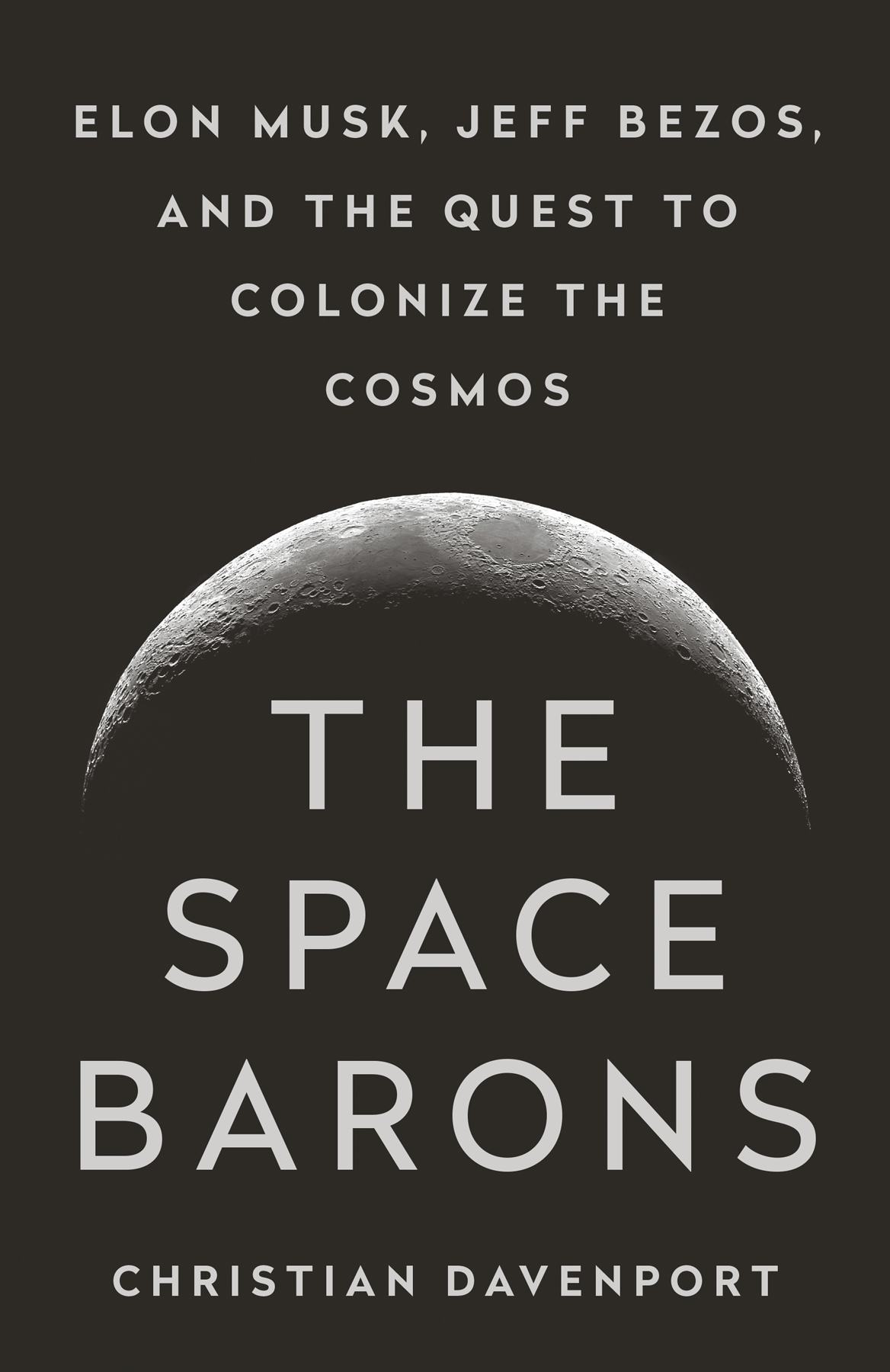Hachette Book Group supports the right to free expression and the value of copyright. The purpose of copyright is to encourage writers and artists to produce the creative works that enrich our culture.
The scanning, uploading, and distribution of this book without permission is a theft of the authors intellectual property. If you would like permission to use material from the book (other than for review purposes), please contact permissions@hbgusa.com. Thank you for your support of the authors rights.
Published by PublicAffairs, an imprint of Perseus Books, LLC, a subsidiary of Hachette Book Group, Inc. The PublicAffairs name and logo is a trademark of Hachette Book Group.
The Hachette Speakers Bureau provides a wide range of authors for speaking events. To find out more, go to www.hachettespeakersbureau.com or call (866) 376-6591.
The publisher is not responsible for websites (or their content) that are not owned by the publisher.
Names: Davenport, Christian, author.
Title: The space barons : Elon Musk, Jeff Bezos, and the quest to colonize the cosmos/Christian Davenport.
Description: First edition. | New York : PublicAffairs, [2018] | Includes bibliographical references and index.
Identifiers: LCCN 2017053089 ISBN 9781610398299 (hardcover) | ISBN 9781610398305 (ebook)
Subjects: LCSH: Space industrializationUnited States. | IndustrialistsUnited StatesBiography. | Aerospace engineersUnited StatesBiography. | Bezos, Jeffrey. | Musk, Elon. | Blue Origen (Firm) | SpaceX (Firm) | Aerospace industriesUnited States. | Outer spaceCivilian use.
T HEY CAUGHT THEIR first glimpse of it at 25,000 feet and falling fast. Normally, a rocket dropping like a bomb would be cause for panic. But instead, the four hundred or so people gathered in the employee lounge at Blue Origins headquarters outside Seattle were thrilled to see the booster plummeting toward Earth.
Estimate ten seconds to engine start, the flight controller announced.
The employees, mostly engineers, were packed in, watching the rocket in free fall on a giant screen. Some had their hands over their mouth. Others sat forward with fists clenched. Mostly, they were silent, waiting for what would happen next.
Engine start, said the flight controller. We have thrust.
At that, the employees started cheering wildly. Just minutes before on this morning three days before Thanksgiving in 2015, the engine had fired to lift the rocket off the launchpad at Blue Origins West Texas test site, flying it faster than the speed of sound past the 62-mile threshold thats considered the edge of space. But now that the rocket was falling back, the thrust had the opposite effect: it was slowing the rocket down, preventing it from slamming into the ground and exploding.
Soon the rockets altitude was 2,000 feet.
Then 1,000.
As the ground came into view, fire from the engine kicked up a plume of dust. The employees at Blue Origin rose to their feet in unison. The rocket was under control, descending gently, like a hot-air balloon coming in for a landing.
One hundred and fifty feet, the flight controller called out.
Seventy feet.
Fifty feet. Velocity steady.
There was one last flash of the engines, a bright orange glow shining through the dust and smoke. Then, it went out.
Touchdown.
The room broke out in pandemonium. The employees celebrated wildly, hugging one another, giving high fives. The rocket booster stood in the center of the pad like a giant trophy.
Jeff Bezos had watched from the control room of his companys West Texas launch site. It was one of the greatest moments of my life, he would later say. I was misty-eyed.
Twenty-eight days later, another rocket was falling from the sky. This time, it was a much bigger booster that had been flying at a much greater velocity, a speed capable of crossing not just the threshold of space but of getting its payload to orbit Earth. For this landing attempt, the chances of success were even more improbable, the chance of disaster, far greater.
About ten minutes after blasting off into the dark, evening skies over Cape Canaveral, Florida, the fire from the rocket engine suddenly appeared like a streetlight in the distance, a shimmering, ethereal beacon lowering through the clouds.
As they watched on television screens, the SpaceX employees who had gathered at the companys headquarters outside Los Angeles on this evening just before Christmas 2015 cheered it just as their rivals at Blue Origin had doneand then some.
Elon Musk watched the rocket reappear from outside on a causeway. Then, he sprinted back into the control room to see the image of the rocket standing proudly on the landing pad. Like Bezos, he would say this was one of the greatest days of his life. A revolutionary moment, he called it, one that quite dramatically improves my confidence that a city on Mars is possible.
S OME FIFTY YEARS after the advent of the Space Age, no one ever had flown a rocket past the edge of space and landed it vertically. Now, it had been performed twice in less than a month.
For generations, spaceflight had been celebrated largely for the takeoffs. But the landings were reminiscent of Neil Armstrong and Buzz Aldrins touching down on the surface of the moon in the lunar module. Or the seven-minutes of terror landing of the Curiosity rover on the surface of Mars. The sight of the boosters standing on terra firma, scorched but triumphant, portended a sense of arrival, and offered hope for another Apollo 11 moment, the next giant leap many had felt they were promised but had never come.
Even more impressive was that the landings had been accomplished not by nationsnot even NASA had pulled off such a featbut by a pair of private companies. Backed by billionaires intent on developing reusable rockets, which could fly, land, then fly again, they were pursuing a holy graila technology with the potential to dramatically lower the cost of space travel.
For decades, the first stages of rockets were ditched into the ocean after powering their payloads to space. To Musk and Bezos, that was an incredible waste, like throwing away an airplane after flying from New York to Los Angeles. Now they had shown that rockets could fly not just up, but back down, landing with precision and reigniting interest in human space travel in a way not seen in decades.
The landings had touched off celebrations not just at Blue Origin and SpaceX, but among their legions of growing fans, who watched the viral videos by the millions. It was the 1960s revisited, but on YouTube and Reddit, where the new space fans congregated the way enthusiasts once crowded Cocoa Beach along the cape. With unbridled enthusiasm, they cheered this new Space Age, just as their parents cheered John Glenn blasting off to orbit in a moment that eroded Walter Cronkites steely, newsmans detachment. Oh, go baby! he had gushed, live on air, as that rocket tore a hole in the sky.



